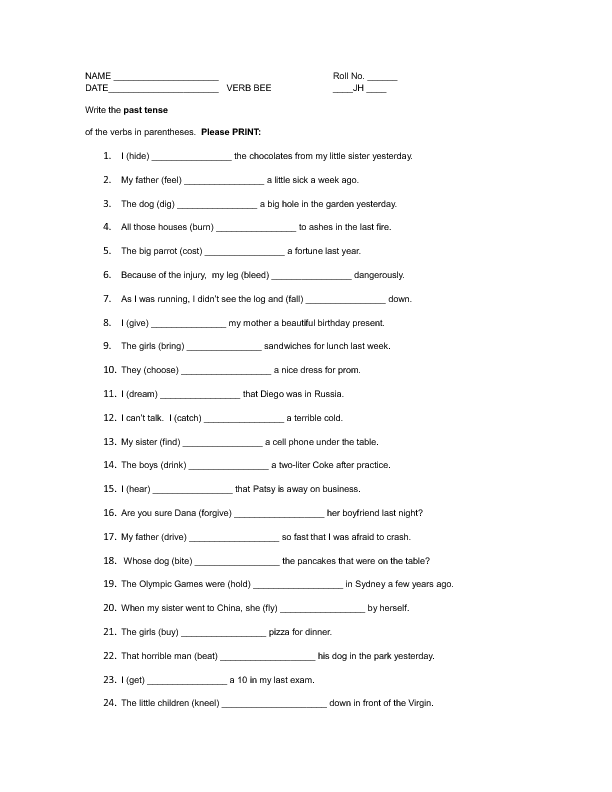


Tip: Always remember that lay is a transitive verb and requires a direct object. (The same is true, by the way, of sit.) In written material, we generally use down with lie when we mean to recline not because down is needed grammatically but because we wish to distinguish from the regular verb lie, meaning to tell an untruth (as in lie, lied, lied). If you tell your dog, Lie, as in (You) lie (down), that's a complete sentence. More on lie: In its simplest (command) form, when the you is implied, lie is a sentence all by itself.

Lay (present), laid (past) and laid (past participle). Lie (present,) lay (past) and lain (past participle). The principal parts (most-common verb forms) of lie are:

It's sit, sat and sat but set, set, set.) (Sit and set, probably the irregular verbs that give people the most trouble next to lie and lay, for example, have no parts in common. Here's why: The past tense form of lie is lay, so it's indistinguishable from lay in the present tense except in usage. Regular verbs create their past and past participle forms by adding d or ed to the stem of their infinitives (love, loved, loved), but irregular verbs create past and past participle forms by altering their stems in unpredictable ways.Ī number of common irregular verbs give people trouble, particularly:ĭive, drown, fly, hang, lead, prove, sit, set and shrink.īut lie and lay seem to give people more difficulty than do all the other irregular verbs combined. In general, irregular verbs are troublesome to learn. Question: Is lay used correctly in this cartoon? Answer below.


 0 kommentar(er)
0 kommentar(er)
